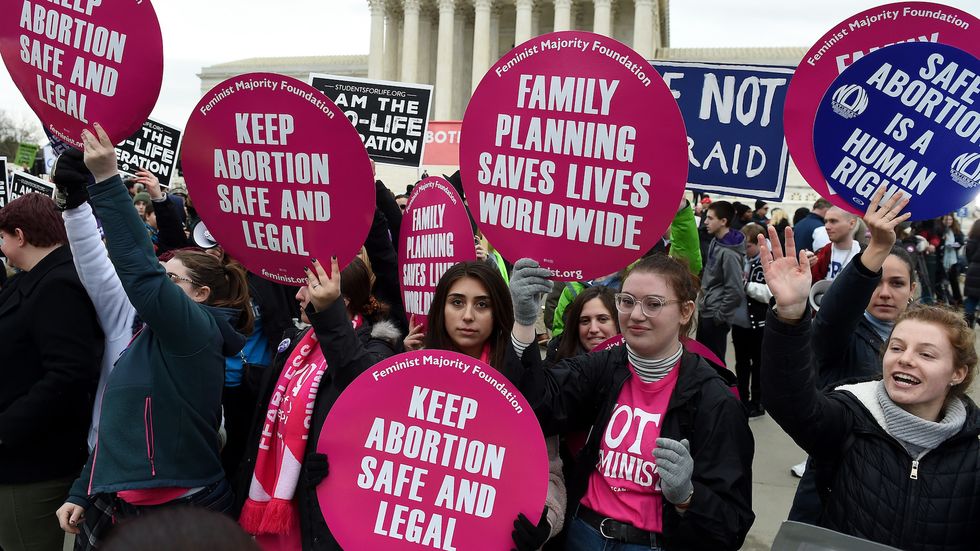"Abortion is health care." This simple claim has existed for years, but recently made its way into the world again via Senator Bernie Sander's Twitter earlier this morning. It has since brought scathing disputes and animosity between opposing members in the abortion debate. Members of the pro-choice crowd defend the statement, maintaining their view of abortion as a private medical practice that concerns only a woman and her physician. Those who oppose abortion rights, however, condemn the procedure as immoral and unethical, rejecting its classification as health care and even going so far as to call it murder.
Here's the thing, though: Sanders is right. Whether or not you agree with it, abortion is a standard health care procedure and deserves to be treated as one.
Pregnancy is a natural part of life, but it also a health condition that can have serious consequences. It has the potential to change everything, from a person's hormones to their body composition to their financial welfare, in just a matter of months. A person who has spoken with a medical professional and decided that continuing their pregnancy is against their best interests should have every right to terminate that pregnancy privately and without shame. Unfortunately, though, political agendas have clouded our ability to see abortion as the normal procedure it is.
Those who oppose abortion often throw around the idea that terminating a pregnancy is an act akin to homicide, done out a selfish desire to not have a child. This paints those who have abortions in an overwhelmingly negative light and refuses to take into account the situations when abortion is the best course of action for a person to take.
While there's no denying that abortion is a unique procedure in that it removes the potential for life, it is ridiculous to make the argument that terminating a pregnancy is in any way comparable to killing an already-born person.
Gestational limits for elective abortions typically occur around 21 weeks, long before fetuses are developed enough to feel pain. Beyond this threshold, abortions only occur when it is indisputably in the patient's best interest to terminate the pregnancy, typically when their life is in danger. This proves that the decision to terminate a pregnancy is not about any negative feelings towards the fetus, it is about the best course of action for the patient. In this way, abortion is like every other form of health care in America: it exists to allow the patient to make informed decisions about their health and, in doing so, prosper.
Nearly one in four American women will have an abortion by the time they turn 45. This is more than the number of people who will receive treatment for diabetes or asthma over their entire lifespan. Personal viewpoints can quickly make the topic a breeding ground for hostility, but the fact remains that abortion is a part of everyday life. Abortion, at its core, is no different than other forms of standard health care, and the rights and privacy of those who elect to undergo the procedure should be protected at all costs.








 The minimum wage is not a living wage.
StableDiffusion
The minimum wage is not a living wage.
StableDiffusion
 influential nations
StableDiffusion
influential nations
StableDiffusion












